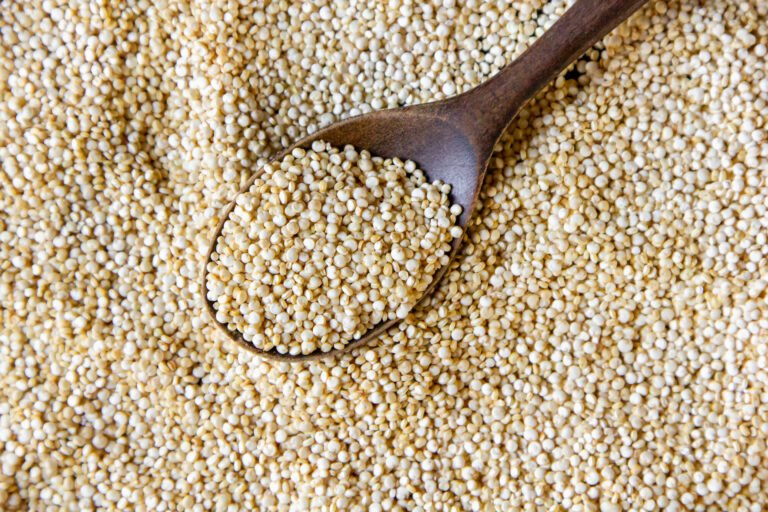For individuals with gluten intolerance or celiac disease, finding suitable and satisfying grains can be challenging. Quinoa emerges as an ideal option, offering a gluten-free solution that’s both nutritious and versatile.

1. Naturally Gluten-Free
Quinoa’s Natural Integrity: Quinoa is a seed, not a true grain, which means it is naturally gluten-free. Unlike many grains that can be cross-contaminated with gluten during processing or cultivation, quinoa does not contain gluten in its natural state. This makes it a safe and reliable option for individuals with gluten intolerance or celiac disease.
2. Nutritional Benefits
Rich in Protein: Quinoa is a complete protein, meaning it contains all nine essential amino acids that the body cannot produce on its own. This makes it an excellent protein source for those who need to avoid gluten-containing grains and animal products. With about 8 grams of protein per cup cooked, quinoa supports muscle repair, immune function, and overall health.
High in Fiber: Quinoa is packed with dietary fiber, which promotes healthy digestion and helps regulate blood sugar levels. With around 5 grams of fiber per cup cooked, it supports gut health and contributes to a feeling of fullness, which can be beneficial for weight management.
Packed with Essential Nutrients: Quinoa is rich in vitamins and minerals, including:
- Magnesium: Supports muscle and nerve function, as well as bone health.
- Iron: Essential for oxygen transport in the blood.
- Folate: Important for cell division and overall growth.
- B Vitamins: Aid in energy production and overall metabolic function.
3. Great for a Balanced Diet
Low Glycemic Index: Quinoa has a low glycemic index compared to many grains, which means it helps maintain stable blood sugar levels. This is particularly beneficial for individuals with diabetes or those looking to manage their blood sugar levels while adhering to a gluten-free diet.
Supports a Balanced Diet: Including quinoa in your diet adds variety and nutrition. It complements other gluten-free staples like vegetables, fruits, and lean proteins, helping to create balanced and nutrient-rich meals.
Conclusion
Quinoa is a standout choice for those with gluten intolerances due to its natural gluten-free status, rich nutritional profile, and versatility in the kitchen. Its high protein and fiber content, along with essential vitamins and minerals, make it an excellent addition to a balanced gluten-free diet. Whether you’re making a hearty salad, a comforting soup, or a simple side dish, quinoa offers a nutritious and delicious solution for those avoiding gluten. Enjoy the benefits of this ancient seed and embrace a healthy, gluten-free lifestyle with quinoa.
